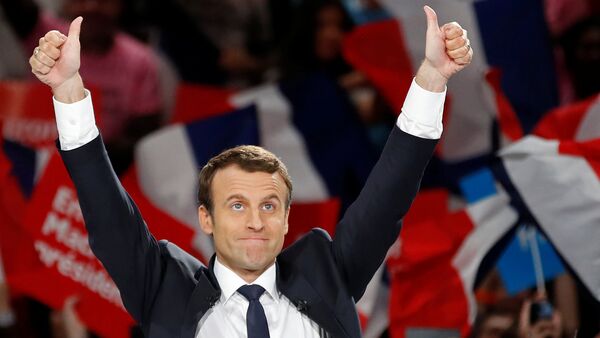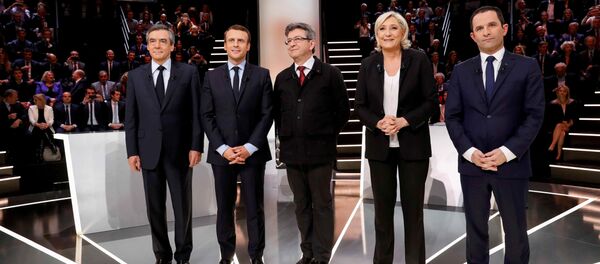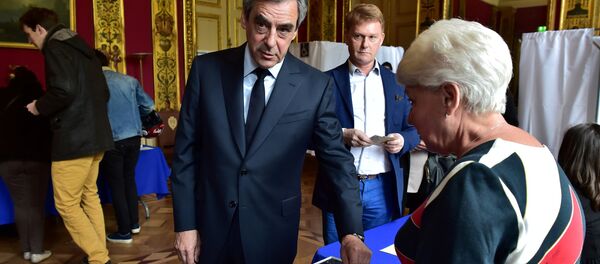Being generally satisfied with French politics, they could opt to simply stay at home instead of going to the polls to cast their vote, the journalist argued.
According to Gashkov, the outcome of the presidential election in France is difficult to predict in advance. Each major candidate has, so far, about 20% of the voters' support.
Macron, who opposes nationalism, supports the withdrawal of sanctions against Russia and promotes trade liberalization, is quite popular. Whether he will be able to defeat his opponents, however, remains to be seen.
"Macron's advantage in this complex struggle is that he irritates the others less than they irritate each other. It won't be difficult for him to win in the second round, although, of course, he needs to get there first," the journalist noted.
"Having realized this, the candidate tried to reduce conflicts to a minimum and almost achieved his goal. The flip side of this strategy is the apathy of his voters, who may not come to the polls on the Big Day," Gashkov continued.
At the same time, a group of Macron's opponents launched an Internet campaign under the hashtag #EmmanuelHollande. The move is aimed at discrediting the presidential candidate and exposing his connections with the current President Francois Hollande.
"Rumors say that the campaign was launched by supporters of Fillon. It's easy to understand why they are doing this — they need to pick up one of their candidate's topics, to unmask the continuity between Hollande and his former minister, Emmanuel Macron, who will pursue the same policy with the help of some members of the Socialist Party and the former government," French expert on strategic communication François-Bernard Huyghe told Sputnik France.
The four most prominent candidates are far-right National Front leader Marine Le Pen, the head of the far-left political movement La France Insoumise (Unsubmissive France) Jean-Luc Melenchon, the Republican Party's nominee Francois Fillon and independent candidate Emmanuel Macron.



